O que você vê é realmente o que está lá fora ou é tudo uma ilusão? Neste fascinante vídeo do canal do Youtuber TED-Ed, vamos explorar como nosso cérebro cria a nossa percepção da realidade e descobrir que uma grande parte do que vemos pode, na verdade, ser uma alucinação. Prepare-se para uma jornada intrigante pelo mundo da neurociência e deixe suas percepções serem desafiadas.
| Audio | |
|---|---|
Normal | Slow |
| English Transcript | Tradução |
| An elderly woman named Rosalie was sitting in her nursing home when her room suddenly burst to life with twirling fabrics. | Uma senhora idosa chamada Rosalie estava sentada em sua casa de repouso quando seu quarto de repente ganhou vida com tecidos giratórios. |
| Through the elaborate drapings, she could make out animals, children, and costumed characters. | Através das cortinas elaboradas, ela podia distinguir animais, crianças e personagens fantasiados. |
| Rosalie was alarmed, not by the intrusion, but because she knew this entourage was an extremely detailed hallucination. | Rosalie ficou alarmada, não pela intrusão, mas porque ela sabia que aquela comitiva era uma alucinação extremamente detalhada. |
| Her cognitive function was excellent, and she had not taken any medications that might cause hallucinations. | Sua função cognitiva era excelente e ela não havia tomado nenhum medicamento que pudesse causar alucinações. |
| Strangest of all, had a real-life crowd of circus performers burst into her room, she wouldn’t have been able to see them: she was completely blind. | O mais estranho de tudo, se uma multidão de artistas de circo da vida real tivesse invadido seu quarto, ela não seria capaz de vê-los: ela era completamente cega. |
| Rosalie had developed a condition known as Charles Bonnet Syndrome, in which patients with either impaired vision or total blindness suddenly hallucinate whole scenes in vivid color. | Rosalie desenvolveu uma condição conhecida como Síndrome de Charles Bonnet, na qual pacientes com visão prejudicada ou cegueira total repentinamente alucinam cenas inteiras em cores vivas. |
| These hallucinations appear suddenly, and can last for mere minutes or recur for years. | Essas alucinações aparecem repentinamente e podem durar apenas alguns minutos ou se repetir por anos. |
| We still don’t fully understand what causes them to come and go, or why certain patients develop them when others don’t. | Ainda não entendemos completamente o que faz com que elas apareçam e desapareçam ou por que certos pacientes as desenvolvem e outros não. |
| We do know from fMRI studies that these hallucinations activate the same brain areas as sight, areas that are not activated by imagination. | Sabemos por estudos de fMRI que essas alucinações ativam as mesmas áreas do cérebro que a visão, áreas que não são ativadas pela imaginação. |
| Many other hallucinations, including smells, sights, and sounds, also involve the same brain areas as real sensory experiences. | Muitas outras alucinações, incluindo cheiros, visões e sons, também envolvem as mesmas áreas do cérebro que as experiências sensoriais reais. |
| Because of this, the cerebral cortex is thought to play a part in hallucinations. | Por causa disso, acredita-se que o córtex cerebral desempenhe um papel nas alucinações. |
| This thin layer of grey matter covers the entire cerebrum, with different areas processing information from each of our senses. | Essa fina camada de massa cinzenta cobre todo o cérebro, com diferentes áreas processando as informações de cada um dos nossos sentidos. |
| But even in people with completely unimpaired senses, the brain constructs the world we perceive from incomplete information. | Mas mesmo em pessoas com sentidos completamente intactos, o cérebro constrói o mundo que percebemos a partir de informações incompletas. |
| For example, our eyes have blind spots where the optic nerve blocks part of the retina. | Por exemplo, nossos olhos têm pontos cegos onde o nervo óptico bloqueia parte da retina. |
| When the visual cortex processes light into coherent images, it fills in these blind spots with information from the surrounding area. | Quando o córtex visual processa a luz em imagens coerentes, ele preenche esses pontos cegos com informações da área circundante. |
| Occasionally, we might notice a glitch, but most of the time we’re none the wiser. | Ocasionalmente, podemos notar uma falha, mas na maioria das vezes não percebemos. |
| When the visual cortex is deprived of input from the eyes, even temporarily, the brain still tries to create a coherent picture, but the limits of its abilities become a lot more obvious. | Quando o córtex visual é privado de informações dos olhos, mesmo que temporariamente, o cérebro ainda tenta criar uma imagem coerente, mas os limites de suas habilidades tornam-se muito mais óbvios. |
| The full-blown hallucinations of Charles Bonnet Syndrome are one example. | As alucinações da Síndrome de Charles Bonnet são um exemplo. |
| Because Charles Bonnet Syndrome only occurs in people who had normal vision and then lost their sight, not those who were born blind, scientists think the brain uses remembered images to compensate for the lack of new visual input. | Como a Síndrome de Charles Bonnet ocorre apenas em pessoas que tiveram visão normal e depois perderam a visão, não naquelas que nasceram cegas, os cientistas acreditam que o cérebro usa imagens lembradas para compensar a falta de novas informações visuais. |
| And the same is true for other senses. | E o mesmo vale para os outros sentidos. |
| People with hearing loss often hallucinate music or voices, sometimes as elaborate as the cacophony of an entire marching band. | As pessoas com perda auditiva costumam ter alucinações com músicas ou vozes, às vezes tão elaboradas quanto a cacofonia de uma banda marcial inteira. |
| In addition to sensory deprivation, recreational and therapeutic drugs, conditions like epilepsy and narcolepsy, and psychiatric disorders like schizophrenia, are a few of the many known causes of hallucinations, and we’re still finding new ones. | Além da privação sensorial, drogas recreativas e terapêuticas, condições como epilepsia e narcolepsia e distúrbios psiquiátricos como esquizofrenia são algumas das muitas causas conhecidas de alucinações, e ainda estamos encontrando novas. |
| Some of the most notorious hallucinations are associated with drugs like LSD and psilocybin. | Algumas das alucinações mais notórias estão associadas a drogas como LSD e psilocibina. |
| Their hallmark effects include the sensation that dry objects are wet and that surfaces are breathing. | Seus efeitos característicos incluem a sensação de que objetos secos estão molhados e que as superfícies estão respirando. |
| At higher doses, the visual world can appear to melt, dissolve into swirls, or burst into fractal-like patterns. | Em doses mais altas, o mundo visual pode parecer derreter, dissolver-se em redemoinhos ou explodir em padrões semelhantes a fractais. |
| Evidence suggests these drugs also act on the cerebral cortex. | Evidências sugerem que essas drogas também atuam no córtex cerebral. |
| But while visual impairment typically only causes visual hallucinations, and hearing loss auditory ones, substances like LSD cause perceptual disturbances across all the senses. | Mas enquanto a deficiência visual normalmente causa apenas alucinações visuais e a perda auditiva, substâncias como o LSD causam distúrbios perceptivos em todos os sentidos. |
| That’s likely because they activate receptors in a broad range of brain areas, including the cortical regions for all the senses. | Provavelmente porque elas ativam receptores em uma ampla gama de áreas do cérebro, incluindo as regiões corticais para todos os sentidos. |
| LSD and psilocybin both function like serotonin in the brain, binding directly to one type of serotonin receptor in particular. | O LSD e a psilocibina funcionam como a serotonina no cérebro, ligando-se diretamente a um tipo de receptor de serotonina em particular. |
| While serotonin’s role in the brain is complex and poorly understood, it likely plays an important part in integrating information from the eyes, nose, ears, and other sensory organs. | Embora o papel da serotonina no cérebro seja complexo e mal compreendido, ela provavelmente desempenha um papel importante na integração de informações dos olhos, nariz, ouvidos e outros órgãos sensoriais. |
| So one theory is that LSD and psilocybin cause hallucinations by disrupting the signaling involved in sensory integration. | Portanto, uma teoria é que o LSD e a psilocibina causam alucinações ao interromper a sinalização envolvida na integração sensorial. |
| Hallucinations associated with schizophrenia may share a similar mechanism with those caused by LSD and psilocybin. | As alucinações associadas à esquizofrenia podem compartilhar um mecanismo semelhante às causadas pelo LSD e pela psilocibina. |
| Patients with schizophrenia often have elevated levels of serotonin in the brain. | Pacientes com esquizofrenia frequentemente apresentam níveis elevados de serotonina no cérebro. |
| And antipsychotic drugs relieve symptoms of schizophrenia by blocking the same serotonin receptors LSD and psilocybin bind to. | E as drogas antipsicóticas aliviam os sintomas da esquizofrenia bloqueando os mesmos receptores de serotonina aos quais o LSD e a psilocibina se ligam. |
| And, in some cases, these drugs can even relieve the hallucinations of patients with Charles Bonnet Syndrome. | E, em alguns casos, essas drogas podem até mesmo aliviar as alucinações de pacientes com Síndrome de Charles Bonnet. |
| We’re still a long way from understanding all the different causes and interconnected mechanisms of hallucinations. | Ainda estamos muito longe de entender todas as diferentes causas e mecanismos interconectados das alucinações. |
| But it’s clear that hallucinatory experiences are much more closely tied to ordinary perception than we once thought. | Mas está claro que as experiências alucinatórias estão muito mais ligadas à percepção comum do que pensávamos. |
| And by studying hallucinations, we stand to learn a great deal about how our brains construct the world we see, hear, smell, and touch. | E estudando alucinações, podemos aprender muito sobre como nossos cérebros constroem o mundo que vemos, ouvimos, cheiramos e tocamos. |
| As we learn more, we’ll likely come to appreciate just how subjective and individual each person’s island universe of perception really is. | À medida que aprendermos mais, provavelmente chegaremos a apreciar o quão subjetivo e individual é o universo da ilha de percepção de cada pessoa. |
Contagem de palavras
A tabela abaixo exibe as palavras encontradas neste vídeo, bem como o número de vezes em que aparecem.
Veja também: Para que serve esta tabela?
| Freq. | Palavra | Freq. | Palavra | Freq. | Palavra |
|---|---|---|---|---|---|
| 40 | the | 26 | and | 22 | of |
| 16 | in | 14 | hallucinations | 13 | to |
| 11 | with | 11 | a | 9 | brain |
| 8 | we | 7 | that | 7 | from |
| 7 | are | 6 | visual | 6 | lsd |
| 6 | like | 6 | is | 6 | for |
| 6 | by | 6 | but | 6 | as |
| 5 | was | 5 | these | 5 | she |
| 5 | senses | 5 | psilocybin | 5 | or |
| 5 | drugs | 5 | areas | 4 | when |
| 4 | syndrome | 4 | still | 4 | serotonin |
| 4 | sensory | 4 | schizophrenia | 4 | same |
| 4 | patients | 4 | not | 4 | into |
| 4 | information | 4 | her | 4 | had |
| 4 | cortex | 4 | charles | 4 | causes |
| 4 | bonnet | 4 | blind | 4 | because |
| 4 | an | 4 | all | 3 | world |
| 3 | we’re | 3 | this | 3 | them |
| 3 | suddenly | 3 | rosalie | 3 | people |
| 3 | part | 3 | our | 3 | other |
| 3 | one | 3 | more | 3 | likely |
| 3 | have | 3 | eyes | 3 | even |
| 3 | cause | 3 | can | 3 | burst |
| 2 | who | 2 | while | 2 | vision |
| 2 | thought | 2 | those | 2 | their |
| 2 | spots | 2 | some | 2 | sight |
| 2 | see | 2 | room | 2 | relieve |
| 2 | receptors | 2 | real | 2 | perception |
| 2 | only | 2 | ones | 2 | often |
| 2 | new | 2 | most | 2 | might |
| 2 | many | 2 | loss | 2 | life |
| 2 | learn | 2 | known | 2 | it |
| 2 | input | 2 | including | 2 | images |
| 2 | how | 2 | hearing | 2 | hallucinate |
| 2 | function | 2 | experiences | 2 | example |
| 2 | entire | 2 | elaborate | 2 | each |
| 2 | don’t | 2 | different | 2 | completely |
| 2 | come | 2 | coherent | 2 | cerebral |
| 2 | associated | 2 | appear | 2 | also |
| 2 | activate | 1 | years | 1 | wouldn’t |
| 1 | woman | 1 | wiser | 1 | why |
| 1 | whole | 1 | which | 1 | where |
| 1 | what | 1 | wet | 1 | were |
| 1 | we’ll | 1 | way | 1 | voices |
| 1 | vivid | 1 | uses | 1 | universe |
| 1 | unimpaired | 1 | understood | 1 | understanding |
| 1 | understand | 1 | typically | 1 | type |
| 1 | twirling | 1 | true | 1 | tries |
| 1 | touch | 1 | total | 1 | time |
| 1 | tied | 1 | through | 1 | think |
| 1 | thin | 1 | they | 1 | therapeutic |
| 1 | theory | 1 | then | 1 | that’s |
| 1 | than | 1 | temporarily | 1 | taken |
| 1 | symptoms | 1 | swirls | 1 | surrounding |
| 1 | surfaces | 1 | suggests | 1 | substances |
| 1 | subjective | 1 | studying | 1 | studies |
| 1 | strangest | 1 | stand | 1 | sounds |
| 1 | sometimes | 1 | so | 1 | smells |
| 1 | smell | 1 | sitting | 1 | similar |
| 1 | signaling | 1 | sights | 1 | share |
| 1 | serotonin’s | 1 | sensation | 1 | scientists |
| 1 | scenes | 1 | role | 1 | retina |
| 1 | remembered | 1 | regions | 1 | recur |
| 1 | recreational | 1 | receptor | 1 | really |
| 1 | range | 1 | psychiatric | 1 | processing |
| 1 | processes | 1 | poorly | 1 | plays |
| 1 | play | 1 | picture | 1 | person’s |
| 1 | performers | 1 | perceptual | 1 | perceive |
| 1 | patterns | 1 | particular | 1 | out |
| 1 | others | 1 | organs | 1 | ordinary |
| 1 | optic | 1 | once | 1 | on |
| 1 | occurs | 1 | occasionally | 1 | obvious |
| 1 | objects | 1 | nursing | 1 | notorious |
| 1 | notice | 1 | nose | 1 | normal |
| 1 | none | 1 | nerve | 1 | narcolepsy |
| 1 | named | 1 | music | 1 | much |
| 1 | minutes | 1 | mere | 1 | melt |
| 1 | medications | 1 | mechanisms | 1 | mechanism |
| 1 | may | 1 | matter | 1 | marching |
| 1 | make | 1 | lot | 1 | lost |
| 1 | long | 1 | limits | 1 | light |
| 1 | levels | 1 | layer | 1 | last |
| 1 | lack | 1 | know | 1 | knew |
| 1 | just | 1 | its | 1 | it’s |
| 1 | island | 1 | involved | 1 | involve |
| 1 | intrusion | 1 | interconnected | 1 | integration |
| 1 | integrating | 1 | individual | 1 | incomplete |
| 1 | include | 1 | important | 1 | impairment |
| 1 | impaired | 1 | imagination | 1 | home |
| 1 | higher | 1 | hear | 1 | hallucinatory |
| 1 | hallucination | 1 | hallmark | 1 | grey |
| 1 | great | 1 | go | 1 | glitch |
| 1 | fully | 1 | full | 1 | fractal |
| 1 | fmri | 1 | finding | 1 | fills |
| 1 | few | 1 | fabrics | 1 | extremely |
| 1 | excellent | 1 | evidence | 1 | epilepsy |
| 1 | entourage | 1 | elevated | 1 | elderly |
| 1 | either | 1 | effects | 1 | ears |
| 1 | dry | 1 | drapings | 1 | doses |
| 1 | do | 1 | disturbances | 1 | dissolve |
| 1 | disrupting | 1 | disorders | 1 | directly |
| 1 | developed | 1 | develop | 1 | detailed |
| 1 | deprived | 1 | deprivation | 1 | deal |
| 1 | crowd | 1 | create | 1 | covers |
| 1 | could | 1 | costumed | 1 | cortical |
| 1 | constructs | 1 | construct | 1 | conditions |
| 1 | condition | 1 | complex | 1 | compensate |
| 1 | color | 1 | cognitive | 1 | closely |
| 1 | clear | 1 | circus | 1 | children |
| 1 | characters | 1 | certain | 1 | cerebrum |
| 1 | caused | 1 | cases | 1 | cacophony |
| 1 | broad | 1 | breathing | 1 | brains |
| 1 | both | 1 | born | 1 | blown |
| 1 | blocks | 1 | blocking | 1 | blindness |
| 1 | binding | 1 | bind | 1 | been |
| 1 | become | 1 | band | 1 | auditory |
| 1 | at | 1 | area | 1 | appreciate |
| 1 | any | 1 | antipsychotic | 1 | animals |
| 1 | alarmed | 1 | addition | 1 | activated |
| 1 | act | 1 | across | 1 | about |
| 1 | able | 1 | abilities |



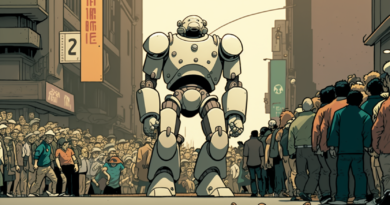
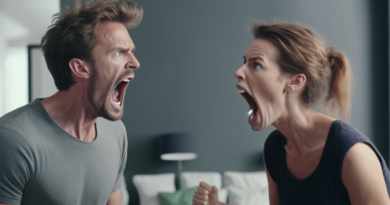
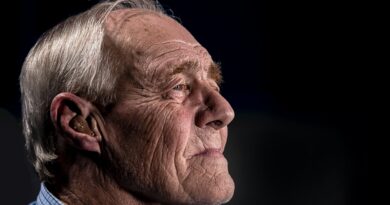


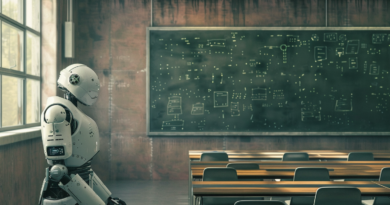
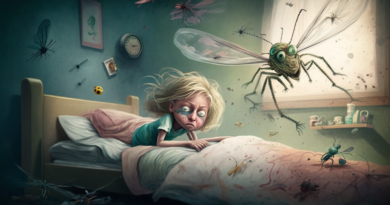
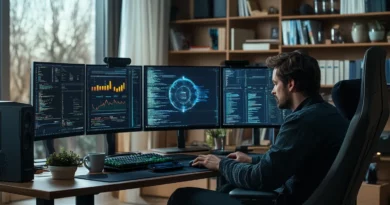
Excelente